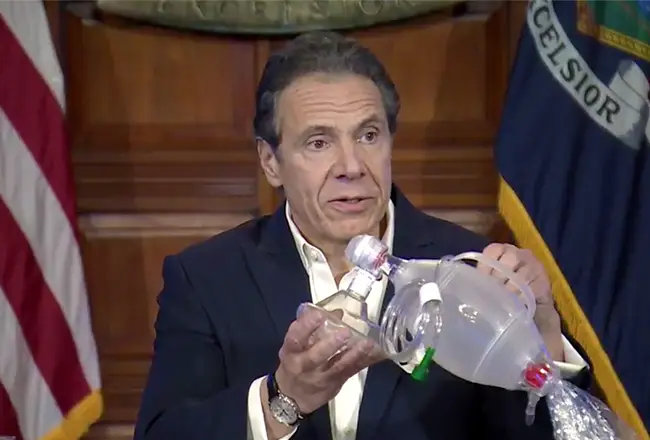Banks are finding the COVID-19 crisis a very challenging time.
However, local and national lending institutions are making encouraging sounds about helping their customers navigate today”™s uncertainties.
In fact, Connecticut has been working to provide relief, particularly for small businesses.
“We”™re in much better condition than many of our peer states,” Gov. Ned Lamont said at a March 19 press briefing, referring to Connecticut”™s $200 million surplus and the $2.5 billion in its rainy day fund.
 At the briefing, Department of Economic and Community Development (DECD) Commissioner David Lehman said the department was putting the finishing touches on a small-business bridge loan program, which he defined as “a bridge to when revenues start flowing again.”
At the briefing, Department of Economic and Community Development (DECD) Commissioner David Lehman said the department was putting the finishing touches on a small-business bridge loan program, which he defined as “a bridge to when revenues start flowing again.”
Terms would be 12 to 18 months at zero to 1%, Lehman said. That differs from the loans being offered by the U.S. Small Business Administration (SBA), whose Economic Injury Disaster Loans offer up to $2 million in assistance over a maximum of 30 years at 2.75% to 3.75% interest.
“The banks have a significant amount of capital” as opposed to during the 2008-09 financial crisis, Lehman added. “They can be a big part of the solution this time.”
“We are constantly getting more information from the OCC (Office of the Comptroller of the Currency, a bureau within the U.S. Treasury Department) and the SBA. And we”™ve had really good correspondence with the state”™s banking commissioner,” Richard Muskus Jr., president of Stamford”™s Patriot Bank, told the Business Journal.
On March 17, Connecticut Department of Banking Commissioner Jorge Perez issued guidance to all state-chartered banks and credit unions, which included the encouragement of easing credit terms for new loans, waiving overdraft fees and late fees for loan balances and allowing borrowers to defer some payments or extending payments”™ due dates.
“Any modifications to existing loans that are deemed prudent by financial institutions in light of the circumstances will not be subject to regulatory criticism,” Perez wrote.
The commissioner issued similar guidance to residential mortgage servicers the following day.
Newtown Savings Bank President Ken Weinstein said the guidance contains “nothing surprising or inconsistent with the informal guidance we are always receiving” from the department.
Muskus noted that loan payment deferrals and the like will be considered on a case-by-case basis.
“Over the past few days, I can”™t tell you how many times I”™ve said (to clients), ”˜The bank is your partner. It”™s incumbent upon us to help you get through this.”™ ” he said.
But while such sudden economic reversals can lead to panic, the banks say their customers have, for the most part, remained steadfast.
“We”™ve received a lot of calls about loan deferrals,” noted Newtown”™s First Vice President, Senior Commercial Lending Officer Mary Jascha. “And we”™ve been expediting those for approval. We”™re also waiting for approval for offering a small business line of credit of up to $50,000. We”™re assuring our customers that there isn”™t a liquidity problem.”
“There are always a few folks” looking to withdraw all their money in such a crisis, added the bank”™s Executive Vice President and Chief Banking Officer Anthony Giobbi. “People who are coming in are generally feeling OK.”
The Connecticut Housing Finance Authority (CHFA) is providing information to its single-family and multifamily borrowers, lenders and partners on financial assistance and federal guidance for those who may be struggling to make mortgage payments due to unemployment, underemployment or other financial hardship related to the crisis.
Options may include forbearance and loan modification, according to CHFA CEO and Executive Director Nandini Natarajan, who noted that those opportunities are available to all mortgage holders, not just CHFA borrowers.
The organization also suspended all foreclosure and eviction activity for 60 days, consistent with actions being taken by the U.S. Department of Housing and Urban Development (HUD) and the Federal Housing Finance Agency (FHFA).
Federal government-backed lenders Fannie Mae and Freddie Mac have ordered lenders to be more flexible with borrowers, reducing and/or suspending payments for up to 12 months.
Also, most banks are encouraging customers to rely on online, mobile and drive-thru banking when they can.
Patriot, People”™s United and Savings Bank of Danbury are among those that have temporarily closed all of their banking office lobbies, while Newtown Savings has done the same except for its Trumbull branch, which does not offer drive-thru service. All ask that appointments be made ahead of time to come to those branches to discuss transactions that cannot be accommodated in the aforementioned ways.
Most banks have asked 50% or more of their employees to work from home while no layoffs have been made.






















